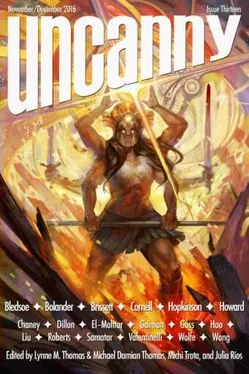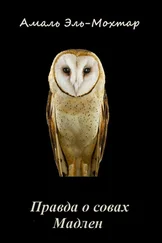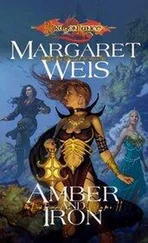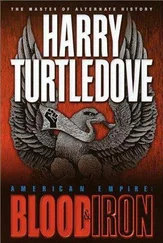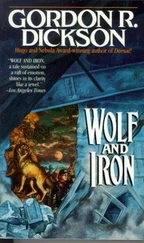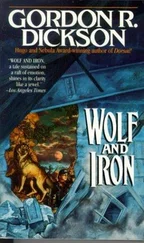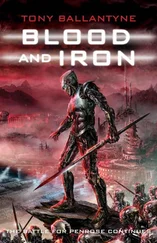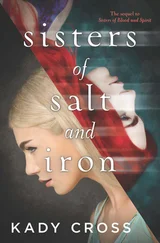Амаль Эль-Мохтар - Seasons of Glass and Iron
Здесь есть возможность читать онлайн «Амаль Эль-Мохтар - Seasons of Glass and Iron» весь текст электронной книги совершенно бесплатно (целиком полную версию без сокращений). В некоторых случаях можно слушать аудио, скачать через торрент в формате fb2 и присутствует краткое содержание. Год выпуска: 2016, Жанр: Фэнтези, на английском языке. Описание произведения, (предисловие) а так же отзывы посетителей доступны на портале библиотеки ЛибКат.
- Название:Seasons of Glass and Iron
- Автор:
- Жанр:
- Год:2016
- ISBN:нет данных
- Рейтинг книги:5 / 5. Голосов: 1
-
Избранное:Добавить в избранное
- Отзывы:
-
Ваша оценка:
- 100
- 1
- 2
- 3
- 4
- 5
Seasons of Glass and Iron: краткое содержание, описание и аннотация
Предлагаем к чтению аннотацию, описание, краткое содержание или предисловие (зависит от того, что написал сам автор книги «Seasons of Glass and Iron»). Если вы не нашли необходимую информацию о книге — напишите в комментариях, мы постараемся отыскать её.
Seasons of Glass and Iron — читать онлайн бесплатно полную книгу (весь текст) целиком
Ниже представлен текст книги, разбитый по страницам. Система сохранения места последней прочитанной страницы, позволяет с удобством читать онлайн бесплатно книгу «Seasons of Glass and Iron», без необходимости каждый раз заново искать на чём Вы остановились. Поставьте закладку, и сможете в любой момент перейти на страницу, на которой закончили чтение.
Интервал:
Закладка:
In the seventh year of their marriage, the woman begged her husband to allow her to go visit her family. He consented to her departure on the condition that she not be alone with her mother, for surely her mother would poison her against him. She promised — but the woman’s mother saw the marks on her, the bruises and scratches, and hurried her into a room alone. In a moment of weakness, the woman listened to her mother’s words against her husband, calling him a monster, a demon. Her mother insisted that she leave him — but how could she? He was still her own dear husband in spite of it all — she only wished him to be as he had been when she first married him. Perhaps he was under a curse, after all, and only she could lift it?
Burn his bear skin, said her mother. Perhaps that is his curse. Perhaps he longs to be a man day and night but is forbidden to say so.
When she returned to her husband, he seemed to have missed her, and was kind and sweet with her. In the night while he slept next to her in his man’s shape, she gathered up his bear skin as quietly as she could, built up the fire, and threw it in.
The skin did not burn. But it began to scream.
It woke her husband, who flew into a great rage, saying she had broken her promise to him. When the woman wept that she had only wanted to free him from his curse, he picked up the skin, tossed it over her shoulders, and threw a bag of iron shoes at her feet. He said that the only way to make him a man day and night was to wear his bear’s skin while wearing out seven pairs of iron shoes, one for each year of their marriage.
So she set out to do so.
Amira’s eyes are wide and rimmed in red, and Tabitha flushes, picks at a burr caught in her husband’s fur.
“I knew marriage was monstrous,” says Amira, “but I never imagined—”
Tabitha shrugs. “It wasn’t all bad. And I broke my promise— if I hadn’t seen my mother, I would never have thought to try and burn the skin. Promises are important to bears. This, here”—she gestures at the glass hill—“this is monstrous: to keep you prisoner, to prevent you from moving or speaking—”
“Your husband wanted to keep you from speaking! To your mother !”
“And look what happened when I did,” says Tabitha stiffly. “It was a test of loyalty, and I failed it. You did nothing wrong.”
“That’s funny,” says Amira, unsmiling, “because to me, every day feels like a test: Will I move from this hill or not, will I grasp at a bird or not, will I toss an apple down to a man when I shouldn’t, will I speak too loudly, will I give them a reason to hurt me and fall off the hill, and every day I don’t is a day I pass—”
“That’s different. That’s dreadful.”
“I don’t see the difference!”
“You don’t love this hill!”
“I love you,” says Amira, very softly. “I love you, and I do not understand how someone who loves you would want to hurt you, or make you walk in iron shoes.”
Tabitha chews her lips, trying to shape words from them, and fails.
“I told my story poorly,” she says, finally. “I told it selfishly. I did not speak of how good he was — how he made me laugh, the things he taught me. I could live in the iron shoes because of his guidance, because of knowing the poison berry from the pure, because he taught me to hunt. What happened to him, the change in him”—Tabitha feels very tired—“it must have had to do with me. I was meant to endure it until the curse broke, and I failed. It’s the only thing that makes sense.”
Amira looks at Tabitha’s ruined feet.
“Do you truly believe,” she says, with all the care she pours into keeping her spine taut and straight on her glass seat, “that I had nothing to do with those men’s attentions? That they would have behaved that way no matter what I looked like?”
“Yes,” says Tabitha firmly.
“Then is it not possible”—hesitant, now, to even speak the thought—“that your husband’s cruelty had nothing to do with you? That it had nothing to do with a curse? You said he hurt you in both his shapes.”
“But I—”
“If you’ve worn your shoes halfway down, shouldn’t you be bending your steps toward him again, that the last pair be destroyed near the home you shared?”
In the shifting light of the moon both their faces have a bluish cast, but Amira sees Tabitha’s go gray.
“When I was a girl,” says Tabitha thickly, as if working around something in her throat, “I dreamt of marriage as a golden thread between hearts — a ribbon binding one to the other, warm as a day in summer. I did not dream a chain of iron shoes.”
“Tabitha”—and Amira does not know what to do except to reach for her hand, clutch it, look at her in the way she looks at the geese, longing to speak and be understood—“you did nothing wrong.”
Tabitha holds Amira’s gaze. “Neither did you.”
They stay that way for a long time, until the sound of seven geese’s beating wings startles them into looking up at the stars.
The days and nights grow warmer; more and more geese fly overhead. One morning Tabitha begins to walk her circle around Amira when she stumbles, trips, and falls forward into Amira’s arms.
“Are you all right?” Amira whispers, while Tabitha clutches at the throne, shaking her head, suddenly unsteady.
“The shoes,” she says, marveling. “They’re finished. The fourth pair. Amira.” Tabitha laughs, surprises herself to hear the sound more like a sob. “They’re done.”
Amira smiles at her, bends forward to kiss her forehead. “Congratulations,” she murmurs, and Tabitha hears much more than the word as she reaches, shaky, wobbling, for the next pair in her pack. “Wait,” says Amira quietly, and Tabitha pauses.
“Wait. Please. Don’t—” Amira bites her lip, looks away. “You don’t have to — you can stay here without—”
Tabitha understands, and returns her hand to Amira’s. “I can’t stay up here forever. I have to leave before the suitors come back.”
Amira draws a deep breath. “I know.”
“I’ve had a thought, though.”
“Oh?” Amira smiles softly. “Do you want to marry me after all?”
“Yes.”
Amira’s stillness turns crystalline in her surprise.
Tabitha is talking, and Amira can barely understand it, feels Tabitha’s words slipping off her mind like sand off a glass hill. Anything, anything to keep her from putting her feet back in those iron cages—
“I mean — not as a husband would. But to take you away from here. If you want. Before your suitors return. Can I do that?”
Amira looks at the golden apple in her hand. “I don’t know— where would we go?”
“Anywhere! The shoes can walk anywhere, over anything—”
“Back to your husband?”
Something like a thunderclap crosses Tabitha’s face. “No. Not there.”
Amira looks up. “If we are to marry, I insist on an exchange of gifts. Leave the fur and the shoes behind.”
“But—”
“I know what they cost you. I don’t want to walk on air and darkness if the price is your pain.”
“Amira,” says Tabitha helplessly, “I don’t think I can walk without them anymore.”
“Have you tried? You’ve been eating golden apples a long while. And you can lean on me.”
“But — they might be useful—”
“The glass hill has been very useful to me,” says Amira quietly, “and the golden apples have kept me warm and whole and fed. But I will leave them — I will follow you into woods and across fields, I will be hungry and cold and my feet will hurt. But if you are with me, Tabitha, then I will learn to hunt and fish and tell the poison berry from the pure, and I will see a river raise its skirt of geese, and listen to them make a sound like thunder. Do you believe I can do this?”
Читать дальшеИнтервал:
Закладка:
Похожие книги на «Seasons of Glass and Iron»
Представляем Вашему вниманию похожие книги на «Seasons of Glass and Iron» списком для выбора. Мы отобрали схожую по названию и смыслу литературу в надежде предоставить читателям больше вариантов отыскать новые, интересные, ещё непрочитанные произведения.
Обсуждение, отзывы о книге «Seasons of Glass and Iron» и просто собственные мнения читателей. Оставьте ваши комментарии, напишите, что Вы думаете о произведении, его смысле или главных героях. Укажите что конкретно понравилось, а что нет, и почему Вы так считаете.
